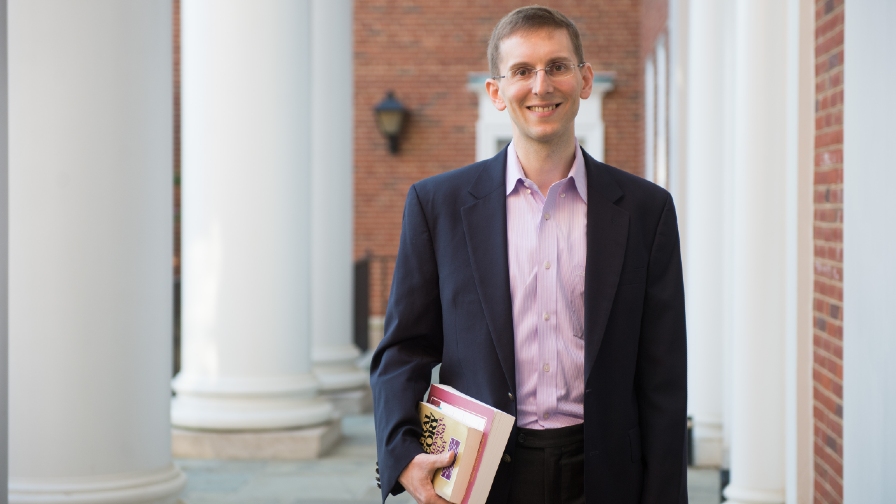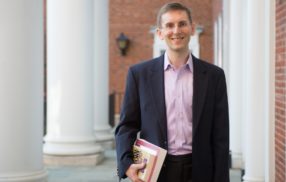
Addressing the US Senate, UVA Darden Professor Urges Scenario Planning for the Workforce Implications of AI
By Dave Hendrick
University of Virginia Darden School of Business Professor Anton Korinek addressed the United States Senate on 1 November.
Speaking before lawmakers at the bipartisan AI Insight Forum hosted by Senate Majority Leader Chuck Schumer and Senators Mike Rounds, Martin Heinrich and Todd Young, Korinek, an economist with joint appointments at the Darden School and the University of Virginia Department of Economics, spoke about the workforce implications of the rise of AI, describing the coming age as a “new era of cognitive automation.”
The AI Insight Forum is intended to educate members of Congress on the state of AI, with Schumer describing a vision of building an AI policy that “enriches our world and opens the door to new prosperity” while minimizing “the very real risk.”
According to Korinek, the traditional paradigm of increased education proving to be the best preparation for workforce advancement is being called into question by the advent of ever more advanced AI systems, which are automating increasingly complex cognitive work.
With AI systems progressing at “breakneck” speed, the challenge for lawmakers will be to “steer technological progress to deliver shared prosperity,” Korinek testified.
“Even if progress makes it possible, shared prosperity does not automatically materialize without thoughtful policy guidance,” Korinek said. “Historically, technological leaps have often created winners and losers, with entire groups left behind.”
Korinek described the current period of general-purpose AI as the “honeymoon period,” with cognitive workers able to use systems for productivity gains while job disruption is still limited. A potential future, however, involves AI systems being able to perform virtually all cognitive work at comparatively low costs, leading to significant disruption in the workforce.
Korinek offered three scenarios covering a span of potential trajectories for AI and the workforce, and encouraged legislators to plan for economic policy that worked across all scenarios, up to and including a form of “seed” universal basic income that remains minimal if the workforce implications of AI remain limited but rises if significant disruption occurs.
The AI Insight Forums aim to bring together a diverse group of stakeholders. Other participants at the 1 November AI Forum included CEOs and senior leaders from Mastercard, Indeed, Microsoft and Accenture, among others.
On 26 October, Darden received the largest gift in School history, a gift that will fund research and instruction in artificial intelligence, its ethical implications for management, and the challenges and opportunities AI presents for business and society and human well-being.
Read the full text of Korinek’s testimony.
The University of Virginia Darden School of Business prepares responsible global leaders through unparalleled transformational learning experiences. Darden’s graduate degree programs (MBA, MSBA and Ph.D.) and Executive Education & Lifelong Learning programs offered by the Darden School Foundation set the stage for a lifetime of career advancement and impact. Darden’s top-ranked faculty, renowned for teaching excellence, inspires and shapes modern business leadership worldwide through research, thought leadership and business publishing. Darden has Grounds in Charlottesville, Virginia, and the Washington, D.C., area and a global community that includes 18,000 alumni in 90 countries. Darden was established in 1955 at the University of Virginia, a top public university founded by Thomas Jefferson in 1819 in Charlottesville, Virginia.
Press Contact
Molly Mitchell
Senior Associate Director, Editorial and Media Relations
Darden School of Business
University of Virginia
MitchellM@darden.virginia.edu







